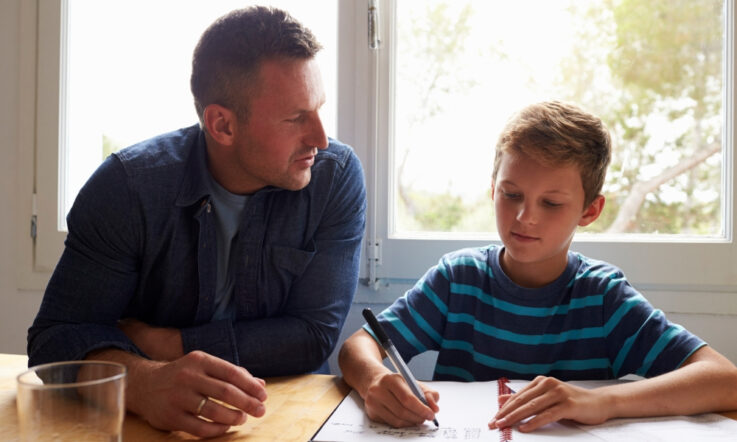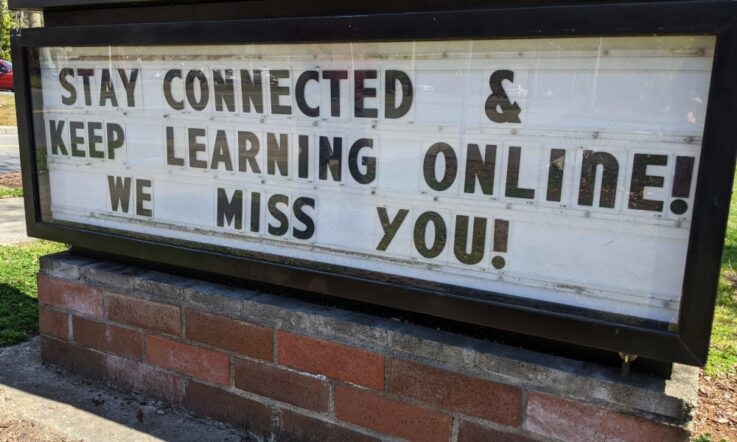Lots of researchers have been capturing the impact of the pandemic in relation to school education and, as these studies come to fruition, we’re starting to gain new insights about what happened and the lessons we can learn for the future. One new study is from the perspective of Australian teachers.
Professor Penny Van Bergen, Head of the University of Wollongong’s School of Education, and Macquarie University’s Emily Daniel asked 210 teachers from across Australia about the change in their role due to the pandemic. The study took place in the first wave of COVID-19, shortly after the March 2022 Australia-wide lockdown came into effect.
The researchers share their findings in the paper ‘“I miss seeing the kids!”: Australian teachers’ changing roles, preferences, and positive and negative experiences of remote teaching during the COVID-19 pandemic’, published in The Australian Educational Researcher.
Research findings
There were 164 secondary teachers, 37 primary teachers and 10 special education teachers in the study. Participants came from multiple states and territories, had a range of teaching experience, and were working at government, independent and Catholic schools.
When researchers analysed their responses, they found almost 9 in 10 (88.6%) reported negative themes and just under half (44.8%) of all respondents reported positive themes.
‘Participants reported missing their students and struggling with excessive workload demands. They also experienced difficulties tracking student progress and felt worried for student wellbeing,’ the researchers write. Perhaps surprisingly, they found that technology was a less common concern: ‘Indeed, 19.1% enjoyed learning new online skills and integrating IT in new ways.’
Asked if their role had changed as a result of the lockdown, 81% said ‘very much’ and 13.8% said ‘considerably’. The most common changes reported by study participants were moving to online/remote teaching (86.7%) and greater workload demands (41%).
Reflecting on the change to online teaching and learning, Fay (60, secondary teacher) commented: ‘Planning online learning materials is extensive and exhausting... requiring flexibility and innovation to present and deliver the learning materials in a way that is meaningful, relevant, and accessible to students. What digital platform to use? Can the students actually do those activities in their homes? Do they have access to the internet? Are they sharing devices with other family members? What resources do they have at home? How do you track what [they] are doing?’
On changes to workload, Bella (26, secondary teacher) reported that she was ‘expected to be online, not from 9 to 3 but 24 h a day’ to ‘respond to students, parents, caregivers, and the school executive’.
Digging into the negative themes discussed by teachers in the study, the most common were that they missed their relationships with students (51.4%), and being able to teach face-to-face (45.7%). Other concerns included being unable to track students’ learning (30%) and worrying about student learning and wellbeing (21%).
On these challenges, Sahara (47, secondary teacher) commented: ‘Teaching is relational. It is live and requires human interaction. We are doing our utmost to replicate but it’s draining. I’m doing more for Year 12 than ever before - without the fun bits.’ And Julia (33, primary teacher) said: ‘hate not knowing where my kids are at academically and I am yet to find a way to accurately assess anything in these trying times’.
The most common positive theme reported was the development and application of new IT skills (19.1%). Mera (29, secondary teacher) commented: ‘The silver lining is when [all this] is over, more people in my workspace will understand ICT and technology better, meaning less resistance to change for plans I wish to implement (online document collaboration, cloud file sharing etc)’, while Bess (35, secondary teacher) enthused about ‘the ease of adding links and assistive technologies, such as text-to-read videos that assist in explaining concepts and topics’.
Other positive themes coming out of the research were the benefits of working from home not having a commute, and not having to manage difficult behaviour from some students in the classroom.
Implications for the future
The researchers say teacher voice will be crucial as new education challenges emerge in the future. ‘While COVID-19 has now been empirically associated with additional stress and exhaustion for teachers, particularly related to work-life balance, technology issues, and concerns for students … it is important that educational leaders, policymakers, and researchers also understand what teachers themselves considered the biggest challenges in their roles when transitioning to remote learning,’ they write.
‘Such insights have implications for the future, with subsequent COVID-19 waves, climate change, and other natural disasters threatening to disrupt education indefinitely and with a changing, potentially blended landscape on the educational horizon.’
References
Van Bergen, P., & Daniel, E. (2022). “I miss seeing the kids!”: Australian teachers’ changing roles, preferences, and positive and negative experiences of remote teaching during the COVID-19 pandemic. The Australian Educational Researcher, 1-20. https://doi.org/10.1007/s13384-022-00565-w



